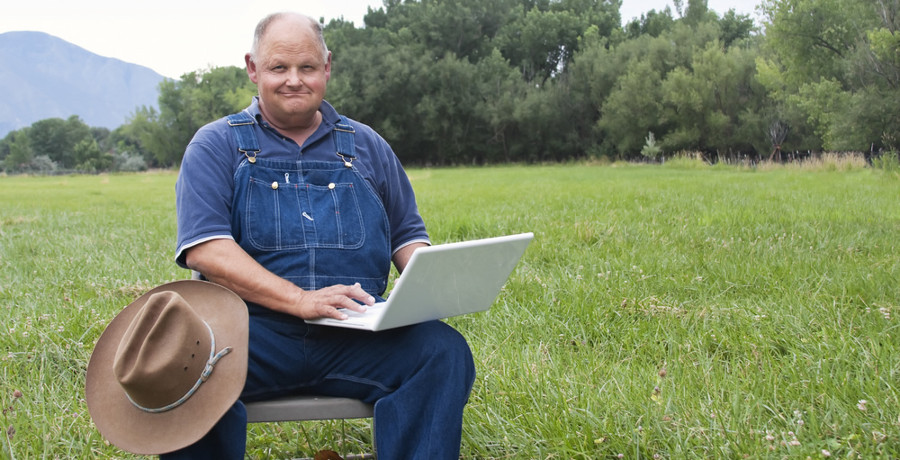Microsoft just announced its plans to eliminate the gap in high-speed Internet access in rural parts of the country by using TV white spaces spectrum over the next five years. In many rural parts of the United States, Internet access is inferior, as in many sites people rely on poor cable connections, radio-powered modems, or satellites to have access to the web.
The campaign is called the Rural Airband Initiative and is an effort to bring high-speed Internet to millions of American households.

Microsoft plans to start the initiative in 12 states and said that 2 million Americans would enjoy the benefits by 2022.
Microsoft will use white spaces to provide high-speed internet to rural areas in 12 states
TV white spaces are invisible, radio airwaves that aren’t yet owned by any broadcasters. These unused white spaces, which operate in the 600 MHz frequency range, will be used to deliver the Internet to rural sites of the country. Microsoft estimates that over 23 million Americans in the countryside lack high-speed internet access.
The Rural Airband Initiative will invest in partnerships with telecommunications companies to create 12 projects in 12 states in the next 12 months. The tech company has already experienced working with unused white spaces, as Microsoft successfully implemented the Internet in 17 countries using the method.
“At Microsoft, we’re prepared to invest our own resources to help serve as a catalyst for broader market adoption of this new model,” said Brad Smith, Microsoft’s chief legal officer, according to The Verge.
The company believes this approach is the best to improve internet connection in rural parts of the country that broadband providers have ignored, as costs of building on these sites are often prohibitive.
Smith noted that the company is not interested in entering the telecommunications business or even profit directly from the initiative. He explained that Microsoft will invest in the upfront capital needed to expand the broadband coverage and that they’ll seek a revenue share from operators to recoup their investment. He added that they would then use those earnings to invest in additional projects to expand coverage even more.
“We’re confident that this approach is good for the country and even for our business,” said Smith. “After all, if 23 million additional customers can access the internet at broadband speeds, every tech company in America will benefit.”
Microsoft partnered in Virginia to provide an Internet connection to Charlotte and Halifax counties
Microsoft also released a video where they explain their mission for the Rural Airband Initiative in Virginia. There, the tech company partnered with Mid-Atlantic Broadband Communities and the Virginia Tobacco Region Revitalization Commission.
John Wayne Noel, a teacher in Charlotte County, Virginia, is interviewed in the video, and he explains that at the beginning of every semester, he asks his students if they have internet access and only a handful say they do.
Noel noted that the lack of Internet limits any homework assignment he gives and that it’s a “handicap for teachers.” He said that even in the 21st century, their hands are tied when it comes to homework.

Microsoft estimates that 5 million households with school-age children don’t have access to the Internet in rural America. In Virginia, the partnership plans to provide free broadband connections in two communities where 50 percent of students have no access to high-speed internet.
Tad Deriso, President and CEO of Mid-Atlantic Broadband Communications, noted that the homework gap is a major problem for their region, but that Charlotte and Halifax counties, for instance, are no longer going to be “left behind” when it comes to high-speed Internet connection.
Microsoft is asking the FCC to release more white spaces
Microsoft’s decision to utilize unused TV white spaces was met with some opposition from broadcasters. These white spaces aren’t available in every market in the country, so Microsoft is asking the Federal Communications Commission (FCC) to reserve some of that spectrum for unlicensed use in the months to come. However, broadcaster companies aren’t thrilled with the idea, as they are required to pay to obtain that spectrum from the U.S. government.
The company will remain lobbying in Washington, D.C., to obtain the release of more white spaces. Microsoft has repeatedly called for government funding on a “matching basis” with private sector money, according to Recode.
A spokesman for Microsoft told Recode that the initial 12 states in the initiative would be Michigan, New York, North Dakota, Arizona, Georgia, Kansas, Maine, South Dakota, Texas, Virginia, Washington, and Wisconsin.
Microsoft also shared its plans to work with groups like the National 4-H Council, an organization committed to providing leadership and resources to youths across the country, as an effort to boost digital literacy among young people.
Source: The Verge
